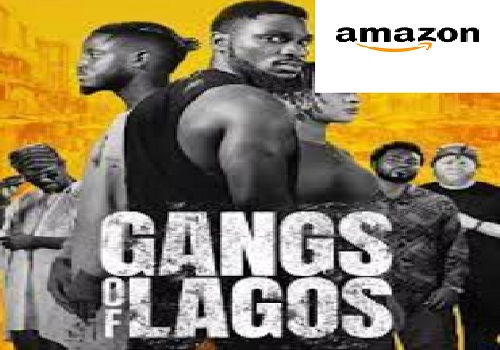
Amazon web services Nigeria has challenged the power of the Lagos State Government to regulate and censor films and videos produced within its territory as stipulated in the Cinematograph Law of Lagos State, 2004.
Amazon, a subsidiary of Amazon Inc and founder of Prime Video Nigeria, therefore submitted that the Cinematograph Law of Lagos State, 2004 “is not applicable to video and films censorship in the state.”
This was revealed in a preliminary objection by the global entertainment giant in a suit filed by the Isale-Eko Descendants Union (IDU), among others.
The union had instituted a suit seeking N10 billion damages against Amazon and other producers of the Gangs of Lagos for alleged depiction of Isale Eko as a den of criminals and Eyo Masquerade as a gang of murderers.
Other claimants in the suit are Chief Ayodele Bajulaiye, who sued on behalf the Bajulaiye Chieftaincy Family and Eyo Iga Bajulaiye, and Chief Abdul-Waheed Ayeni who sued on behalf of the Sasore Chieftaincy Family and Eyo Iga Sasore.
The defendants are Mrs. Jadesola Osiberu, Ms. Kemi Lala Akindoju, Mr. Adesegun Adetoro, Demi Olubanwo, Mr. Olumide Soyombo, Mr. Bankole Wellington, Mrs. Adesua Etomi-Wellington, Mr. Kola Aina, Greoh Limited and Amazon Web Services Nigeria for alleged sacrilegious and scandalous depiction of Eyo Masquerade in a movie production titled Gangs of Lagos
In its preliminary objection filed on June 30, Amazon challenged the power of the state government to regulate videos and films.
Consequently, it asked the court to dismiss the substantive suit on the ground that the Cinematograph Law of Lagos State, 2004 was enacted outside the legislative competence of the Lagos State House of Assembly.
Amazon thus sought “an order pursuant to section 25(1)(q) of the Constitution of the Federal Republic of Nigeria, 1999, striking out this suit as this honourable court does not have jurisdiction to entertain it.”
It argued that the Cinematograph Law of Lagos State, 2004 under which the claimants brought their claims “is not applicable to video and film censorship in Lagos State.
“The appropriate law is the National Film and Video Censor Board Act, 1993, an Act of the National, which has already covered the field,” Amazon argued.
On these grounds, Amazon claimed that the High Court of Lagos State “has no jurisdiction to compel the Lagos State Government to censor the firm Gang of Lagos under the Cinematograph Law of Lagos State, 2004, which falls within the provisions of the National Film and Video Censor Board Act.”
-Thenation





